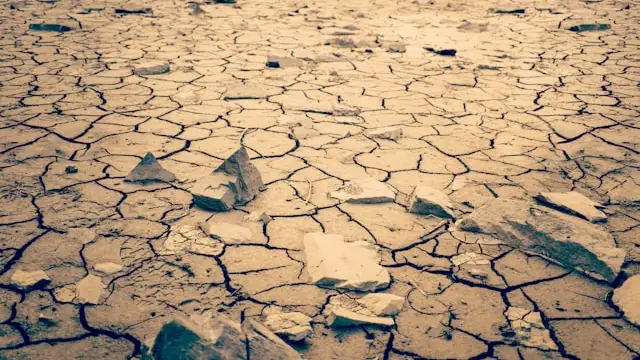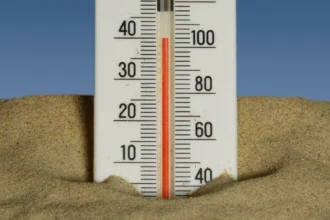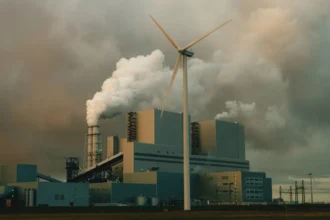A dangerous heat wave is right now hitting the Middle East and South Asia with temperatures reaching up to 50°C (122°F). At the same time, the UK has received serious warnings about its own climate future. According to DailyMail, the Climate Change Committee (CCC) has shared new information showing how climate change threatens both people and buildings in Britain.
Record-Breaking Heat in Asia
Pakistan could see temperatures hit 50°C this week, making it dangerously hot for millions of people. The Washington Post reports that from April 29 to May 5, Pakistan recorded a forecast temperature of 48.8°C. Other countries are suffering too:
- Iran: 48.3°C
- Kuwait: 47.2°C
- Saudi Arabia, Mauritania, India: 46.6°C
- Iraq, Qatar, Sudan: 46.1°C
- United Arab Emirates: 45.5°C
A weather pattern called a high-pressure dome is trapping heat across these regions. Think of it like putting a lid on a pot – the hot air can’t escape. According to TheGuardian, cities are getting even hotter than surrounding areas. Places like Delhi and Islamabad are now up to 3°C warmer on average than nearby countryside areas, compared to how things were in the 1950s to 1980s.
Pakistan’s Shaheed Benazirabad recently reached 50°C, which is nearly 8.5°C above the normal April average. This shows how climate change is making extreme weather more common and more severe.
Growing Dangers for the UK
You might think the UK is safe from such extreme heat, but the Climate Change Committee’s new report shows serious risks ahead. By 2050, about 11,000 Britons could die each year from heat-related causes. This is a huge increase from current numbers.
According to GOV.UK, there were 1,311 heat-associated deaths during the summer of 2024 in England alone. This was 282 more deaths than expected based on past patterns. The highest death rates were among people aged 85 and over.
Flooding threats are also growing quickly. About 6.3 million homes in England are at risk of flooding, and this could rise to 8 million by 2050. The theccc.org.uk website reports that over half of England’s top quality farming land faces flood risks too.
How This Affects Buildings and Travel
Extreme weather is already damaging important services you rely on. When it gets very hot, railway lines can expand and bend, causing train delays. Power lines sag in high heat, which can cause electricity problems.
The CCC found that over a third of UK railways and roads are currently at risk of flooding problems. This means your travel plans and daily life could face more disruptions in the future.
The Money Side of Climate Change
If nothing changes, climate problems could reduce the UK’s economy by up to 7% of GDP by 2050. That’s a huge financial hit. Think about it like losing £7 out of every £100 the country makes.
Baroness Brown, who leads the CCC’s adaptation committee, has criticized the government for not doing enough preparation. The committee says the UK needs better plans for dealing with climate change effects.
What Can Be Done?
The CCC says the government needs to improve its climate adaptation strategies. This means better planning for extreme weather. They recommend:
- Better coordination across government departments
- Including climate adaptation in all policies
- Creating systems to monitor and evaluate progress
For extreme heat, BMC Public Health suggests cities should build cooling centers where you can escape dangerous temperatures. About 95.7% of U.S. areas with heat plans already do this.
Cities could also plant more trees and create green roofs (roofs covered with plants). These natural solutions help lower temperatures and manage rainwater during storms.
Looking Ahead
As you face these changes in the coming years, both governments and individuals will need to adapt quickly. The current heat wave in Asia shows what happens when temperatures reach extreme levels. For the UK, this is a warning of what could happen without proper preparation.
The decisions made today will shape your future and determine how well your community can handle these climate challenges. Will your government act in time? The evidence suggests there’s no time to waste.











